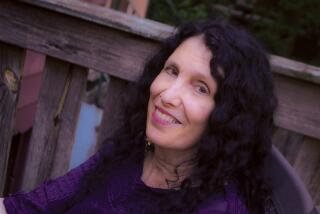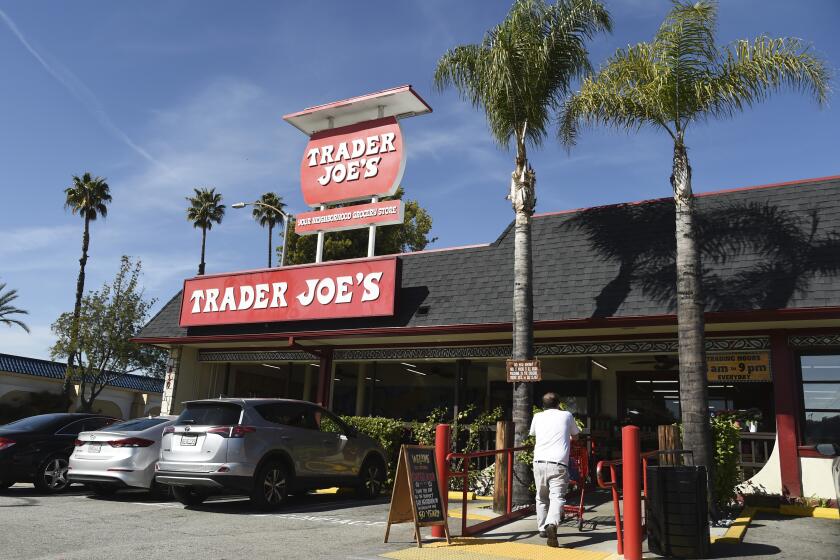Op-Ed: Angela Merkel’s take on how to make a country great (again)
In 2013, German Chancellor Angela Merkel fractured her hip while skiing in St. Moritz, Switzerland. Doctors ordered her to rest. Feeling bored, she picked up “The Transformation of the World,” a 1,500-page tome by the German historian Jürgen Osterhammel. It argued that the most successful 19th century economies championed open markets and liberal immigration laws, and that these policies spurred technological advances. Merkel liked what she read; she felt it reflected her world view. She even invited the academic to give a lecture when she turned 60 later that year.
Merkel has been described as “the liberal West’s last defender” and the virtual antithesis to President Trump. And so she is in many ways. She promotes free trade; she espouses ethnic tolerance; she opposes isolationism. She is also a defender of women’s rights (she introduced Germany’s current abortion law) and an advocate of green policies. But often lost in the conversation is the fact that Merkel adheres to liberal and globalist principles because she thinks that’s best for Germany, not for abstract ideological reasons.
It was Merkel’s illiberal personal history that shaped her governing philosophy.
“I once lived behind a fence. That is something I do not wish to do again,” Merkel said at an EU summit when the Hungarian prime minister criticized Germany’s decision to accept refugees fleeing the Syrian crisis.
No nation can confine itself any more to considering only its own concerns; if it still does so, it will sooner or later inflict harm on itself.
— German Chancellor Angela Merkel, in 2014
Merkel grew up in East Germany, the land of exit visas, where travel was allowed only in exceptional circumstances. More than 100 people were shot and killed when they tried to flee the Stalinist state. As she has said in numerous interviews, Merkel empathizes with the Syrian refugees trying to escape from the no-less totalitarian Islamic State. But she also understands that they can contribute positively to German society, just as communist refugees contributed to Western European and American society.
“No nation can confine itself any more to considering only its own concerns; if it still does so, it will sooner or later inflict harm on itself,” Merkel said in 2014, another opinion substantiated by her past.
The Communist regime imposed punitive tariffs on products from non-communist countries to protect East German factories from competition. Simultaneously, these factories were guaranteed a market for their goods in the Soviet Union. In essence, the Soviet economy was based on the principle “buy Communist, hire Communist.” We all know how that went: Protectionism led to inefficiency, scarcity and inferior products.
To Merkel, it’s obvious that the best way to keep German factories humming is not to force German consumers to buy German, but to make quality products — and to advance policies that help foreign consumers become wealthy enough to buy them.
Hence Merkel’s approach to the European Union. She has endorsed providing economic aid to poorer countries, in part for their advantage, but also — why deny it? — to increase German exports.
Some have criticized Merkel for turning the EU — in Trump’s words — into “basically a vehicle for Germany.” It’s certainly the case that Germany has benefited from EU economic policies, but so too did America benefit from the Marshall Plan after World War II. Merkel, not surprisingly, is concerned about the economic fortunes of the country she leads; but in her universe, cross-border trade ultimately improves conditions everywhere.
Trump believes he can “Make America Great Again” by putting tariffs on imported goods and by shielding American industry. Merkel believes the opposite. She believes that you can make a country great only if its companies are allowed to — indeed, are forced to — prove their worth in open and healthy competition on the world markets.
It is strange indeed that the current great champion of free-market economics is a woman from a former communist country, and not a billionaire capitalist from America.
Matthew Qvortrup is author of “Angela Merkel: Europe’s Most Influential Leader.”
Follow the Opinion section on Twitter @latimesopinion and Facebook
More to Read
A cure for the common opinion
Get thought-provoking perspectives with our weekly newsletter.
You may occasionally receive promotional content from the Los Angeles Times.










